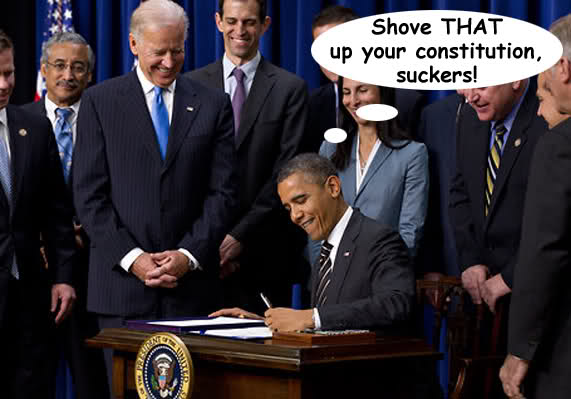wkmac
Well-Known Member
Ok, the title is actually from an article I found in the latest edition of The American Conservative under the title of "Our Machiavellian Constitution" but is an actual reprint and linked to the original source over at Front Porch Republic under the name, Constitution as Regime.
The reason I'm posting this is because in another thread, a poster quoted James Madison from a letter he wrote to one James Robertson on the issue of general welfare:
I don't disagree with the point nor the point of the poster who quoted it in relation of what gov't should be and how far it's reach. I'm a localist kind of guy so a powerful central state in any area in not my cup of tea. But as you'll see if you read the above article linked, it's time to be willing to step back and look a lot closer at the events and the outcome of efforts of the late 1780's and then the following actions of gov't even in those early years. Many men who championed freedom, liberty and limited gov't sure didn't act that way entirely once they themselves sat at and around the head of the federal state so is it any wonder as that generation died off and later generations came into play that the distance between the freedom and liberty enjoyed after the last shot fired at Yorktown and what we call such today are vastly different?
If one wants to de-volve the central state, it's no secret that I do, then one has to do a good root cause analysis and get out of denial in just chasing symptoms in the present. You also can't defang a deadly snake by only removing one fang and one venom sack as the snake if still left able to inflict a lethal strike at the time of it's choosing. Also, history shows time and time again that the Snake of State is more than capable of regrowing that fang many times to the cheers and worship of the very people who thought they had pulled it.
Case in point would be all those who extolled Bush for war and voted for Obama as an act of pulling the fang only to now cheer Obama as he's making that fang even longer and more deadly! Oddly enough Bush himself ran on a policy of "no more nationbuilding" (a fang added to by Clinton) which excited a lot of red state voters yet once in office he grew the fang to never before seen levels. Not really if you understand Lincoln, Wilson and FDR but there's the denial again!
To quote another poster making a good point!

JMO.
The reason I'm posting this is because in another thread, a poster quoted James Madison from a letter he wrote to one James Robertson on the issue of general welfare:
"With respect to the two words 'general welfare,' I have always regarded them as qualified by the detail of powers connected with them. To take them in a literal and unlimited sense would be a metamorphosis of the Constitution into a character which there is a host of proofs was not contemplated by its creators."
I don't disagree with the point nor the point of the poster who quoted it in relation of what gov't should be and how far it's reach. I'm a localist kind of guy so a powerful central state in any area in not my cup of tea. But as you'll see if you read the above article linked, it's time to be willing to step back and look a lot closer at the events and the outcome of efforts of the late 1780's and then the following actions of gov't even in those early years. Many men who championed freedom, liberty and limited gov't sure didn't act that way entirely once they themselves sat at and around the head of the federal state so is it any wonder as that generation died off and later generations came into play that the distance between the freedom and liberty enjoyed after the last shot fired at Yorktown and what we call such today are vastly different?
If one wants to de-volve the central state, it's no secret that I do, then one has to do a good root cause analysis and get out of denial in just chasing symptoms in the present. You also can't defang a deadly snake by only removing one fang and one venom sack as the snake if still left able to inflict a lethal strike at the time of it's choosing. Also, history shows time and time again that the Snake of State is more than capable of regrowing that fang many times to the cheers and worship of the very people who thought they had pulled it.
Case in point would be all those who extolled Bush for war and voted for Obama as an act of pulling the fang only to now cheer Obama as he's making that fang even longer and more deadly! Oddly enough Bush himself ran on a policy of "no more nationbuilding" (a fang added to by Clinton) which excited a lot of red state voters yet once in office he grew the fang to never before seen levels. Not really if you understand Lincoln, Wilson and FDR but there's the denial again!
To quote another poster making a good point!
Just another politician telling people what they want to hear.

JMO.


 That was fun wasn't it!
That was fun wasn't it!
